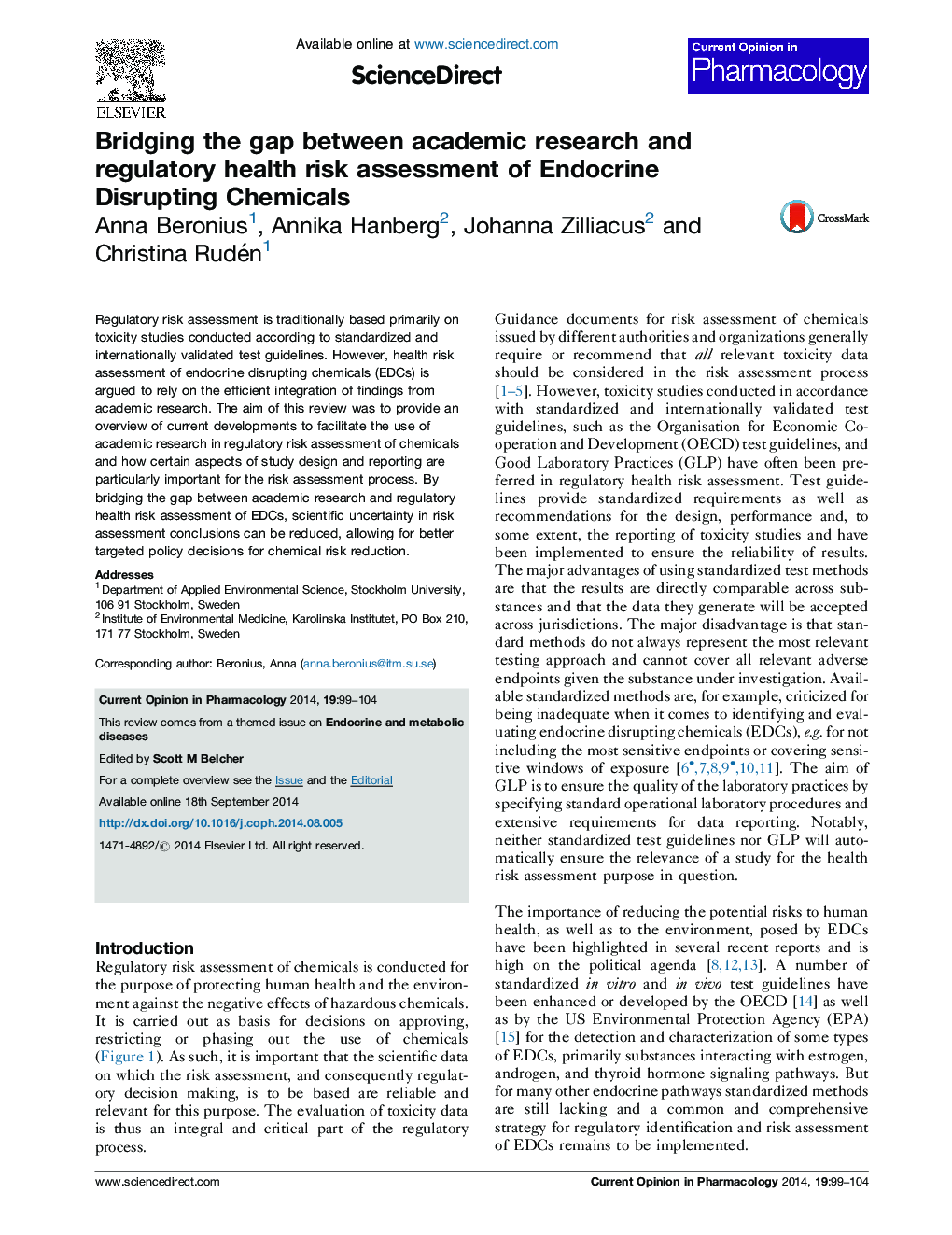| Article ID | Journal | Published Year | Pages | File Type |
|---|---|---|---|---|
| 2529915 | Current Opinion in Pharmacology | 2014 | 6 Pages |
•The use of academic research in risk assessment of EDCs needs to be improved.•Regulatory risk assessment puts specific requirements on study design and reporting.•We review current methods for the evaluation of study adequacy and reporting.•We highlight some critical study design aspects.•These measures aim to contribute to better targeted policy decisions for chemicals.
Regulatory risk assessment is traditionally based primarily on toxicity studies conducted according to standardized and internationally validated test guidelines. However, health risk assessment of endocrine disrupting chemicals (EDCs) is argued to rely on the efficient integration of findings from academic research. The aim of this review was to provide an overview of current developments to facilitate the use of academic research in regulatory risk assessment of chemicals and how certain aspects of study design and reporting are particularly important for the risk assessment process. By bridging the gap between academic research and regulatory health risk assessment of EDCs, scientific uncertainty in risk assessment conclusions can be reduced, allowing for better targeted policy decisions for chemical risk reduction.
